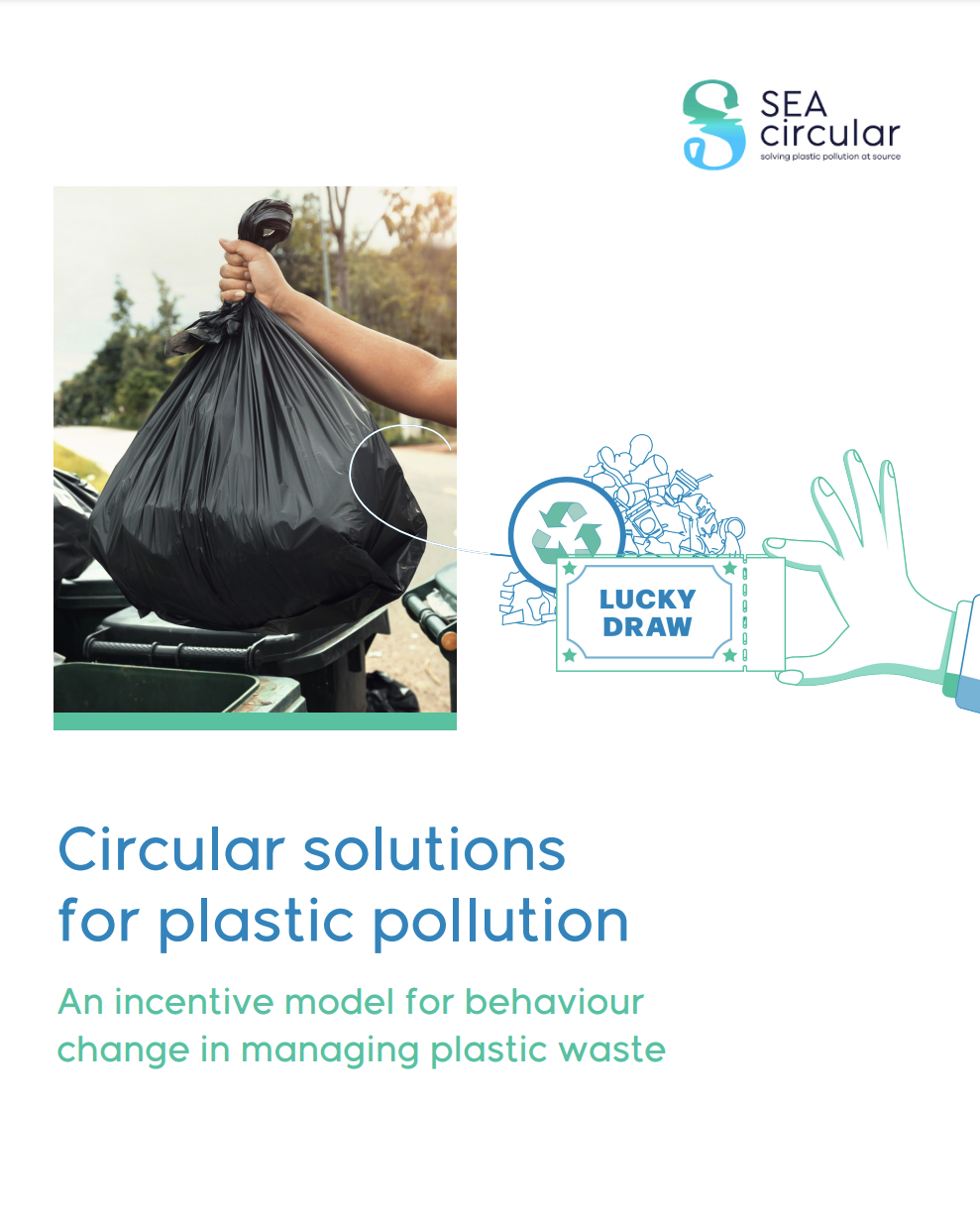This good practice case study is part of a series of knowledge products developed by the SEA circular project to showcase exemplary market-based solutions that bring about transformational changes in how plastic is managed in the value chain. This series captures circular economy approaches to addressing plastic pollution, from innovative business models to behaviour change initiatives. These approaches form part of the SEA circular project’s “circularity framework for the plastic value chain”.
In Thailand, it is estimated that about 20 million people spend a collective 250 billion Thai baht (approximately USD 7 billion) annually on lottery tickets.5 This highlights a fundamental characteristic among them – their belief and interest in the game of chance. Trash Lucky’s model builds on this interest, giving it a positive spin to address the country’s perennial problem of managing plastic waste. Individuals who deposit plastic recyclables in smart bins can exchange their recycled plastic for lucky draw tickets. The smart bins accept all types of plastic and convert the materials to an equivalent amount of “points”. To gain access to the draw, a participant must earn five points equivalent to one lucky draw ticket. The number of lucky draw tickets awarded is equivalent to the amount of recycled plastic waste. Trash Lucky conducts a monthly draw in which the company gives away a variety of prizes from gold bar bullion to shopping vouchers. The company has also contacted sponsors to fund or supply the prizes. In 2021, the Coca-Cola company sponsored a car for the lucky draw winner
For more information visit, https://www.sea-circular.org/


